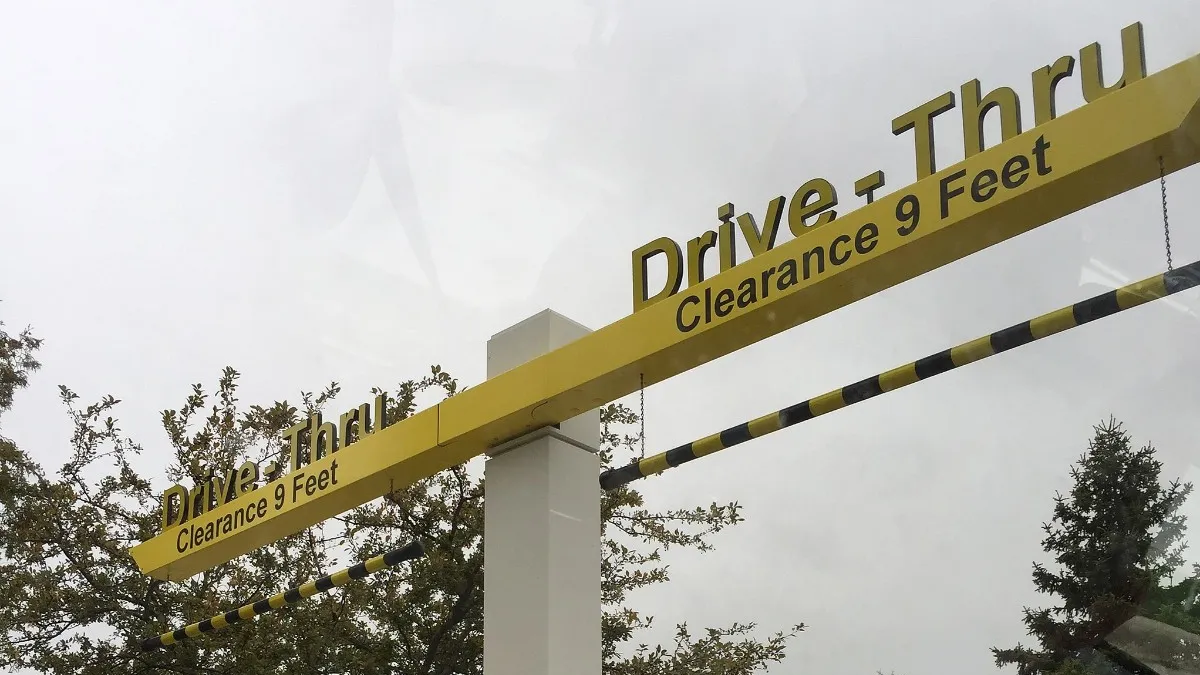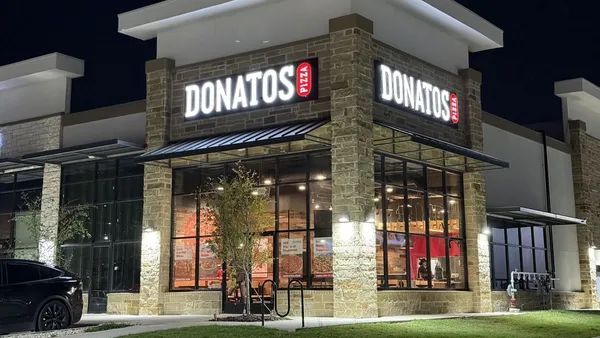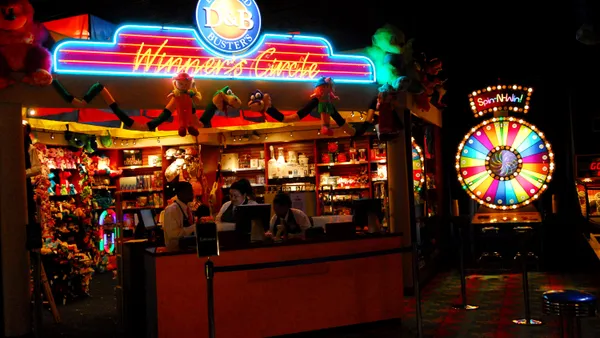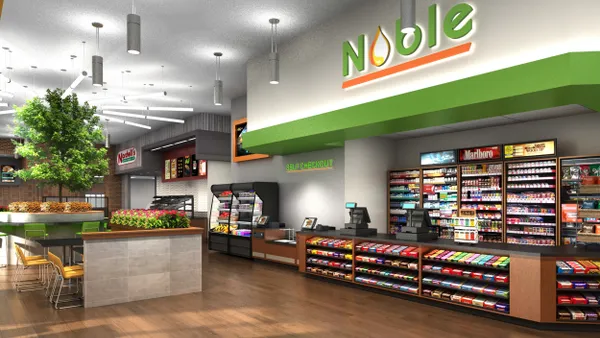Dive Brief:
- McDonald's is piloting voice-ordering technology at the drive-thrus of 10 Chicago restaurants, CEO Chris Kempczinski said Wednesday at Bernstein's 37th Annual Strategic Decisions Conference.
- These restaurants, which prioritize computers to collect orders rather than employees, report roughly 85% order accuracy. Only around 20% of orders at these locations need to be recorded by an employee, he said.
- Kempczinski said he believes voice technology will be scaled across McDonald's drive-thrus in the next five years, acknowledging the challenge of accounting for "an infinite number of promo permutations, menu permutations, dialect permutations, weather permutations — and on and on and on." McDonald's gained access to this voice technology through its acquisition of Apprente, a platform that uses artificial intelligence to take orders at the drive-thru, in 2019.
Dive Insight:
McDonald's has been able to flex some serious technology muscle over the past few years, leveraging its deep pockets to digitize the drive-thru and in-store experience. Many of its recent investments have been tailored to trim wait times and personalize customer offers ahead of the nationwide rollout of its loyalty program, which could increase average spend at the chain. Kempczinski said the loyalty rollout will occur in the U.S. in the latter half of 2021, and in Canada and Germany soon after. The loyalty program will be available in McDonald's top six markets in 2022, the company predicts.
Swapping human employees for voice technology behind the drive-thru speaker could also reduce labor costs for the chain, which recently pledged to raise pay an average of 10% at its U.S. corporate locations. This will impact more than 36,500 employees and raise entry-level hourly wage for crew members to at least $11 to $17.
"Our hope, and certainly what we are working with our franchisees, is that in the back half the year, it becomes ... a little easier of a hiring environment," Kempczinksi said. "But I think some of the macro trends that you saw, which were wage inflation, high demand from a lot of retailers looking for people, I think those are going to persist for quite some time."
McDonald's is looking to boost automation beyond the drive-thru channel as well. Kempczinski said the chain is interested in automating kitchen technology, including fryers and grills, but said these innovations probably wouldn't deploy before 2026.
"The level of investment that would be required, the cost of that equipment, we're nowhere near to what the breakeven would need to be from a labor cost standpoint to make that a good business decision for franchisees to do," he said during McDonald's presentation.
Technology fees have been at the center of a dispute between McDonald's and its franchisees, and tensions are still boiling. Corporate argues that operators are on the hook for outstanding fees, and began charging operators $423 a month to cover a $70 million lag from the company's old payment structure. But the National Franchisee Leadership Alliance, which is comprised of McDonald's operators, claims franchisees owe no outstanding fees — pushing McDonald's to solicit Ernst & Young to conduct a third-party review of the fees.
During the Wednesday presentation, however, Kempczinski said McDonald's won't be dragged down by the dispute, comparing the $70 million the company is attempting to recoup to "rounding errors" in contrast to the financial success of the company and its roughly 2,000 U.S. franchisees.
Overall, their financial health is very strong," Kempczinski said of U.S. operators. "So if you look, 2019 was a record cash flow year. 2020 then became a record on 2019. 2021 will be a record on 2020. So, three consecutive years I think we can confidently say of record cashflow levels."
McDonald's franchisees have also benefited from Paycheck Protection Program loans that have helped fund operations, Kempczinski said. He added that the chain's Experience of the Future remodels will be completed by 2022, which could help its franchisee system drive stronger sales. Operators are "trying to buy other restaurants from franchisees at pretty healthy multiples right now," Kempczinski added, which could signal further financial stability.
Going forward, McDonald's technology innovations will continue through acquisitions so it can "accelerate the work and... customize it for what we need specifically," and scale the solution without spending too much time and energy on it, he said.
"We're not always going to be on the bleeding edge of where technology is. The industry is just evolving too rapidly, so the idea that we're going to try to be competing with the very best voice recognition technologies or the very best POS systems or CRM system, I think we're not going to be in that business."















